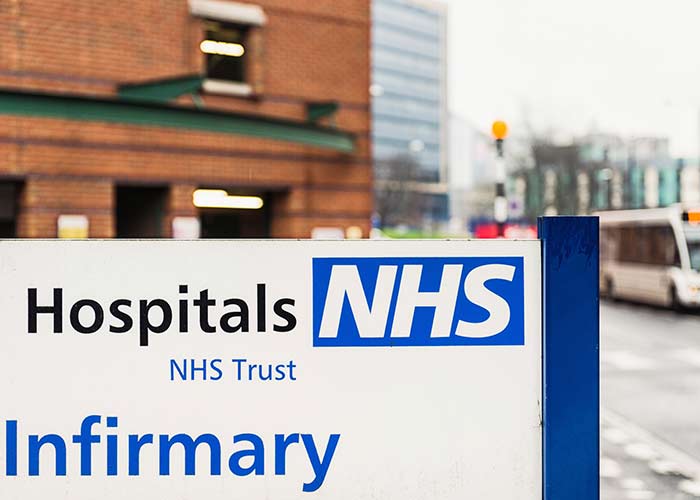
The move by NHS Improvement to draw up a set of rules for trusts looking to create a wholly owned subsidiary offers the opportunity to bring clarity to an area of policy that has become increasingly contentious over the past year.
NHSI’s acknowledgement that it is legitimate for trusts to pursue this route is welcome – but overall their proposals for regulating the establishment of a WOS risk setting the bar too high and may even act as an unnecessary deterrent to trusts.
WOSs have been operating successfully in the NHS since 2010. Trusts have set them up for various reasons, but the benefits they can bring fall into five broad categories:
- to develop new ways of delivering care for patients, including integration with primary care
- to give more autonomy and leadership focus to some services, particularly support and estate functions
- to win new business, which increases income to be reinvested back into the trust;
- to make it easier to implement competitive terms and conditions, often to improve recruitment and retention or reduce vacancies
- to deliver value for money and achieve required efficiency savings. Including, in some cases, putting trusts on an equal footing with private outsourced companies that enjoy the tax advantages.
Setting the bar too high
There is a danger that the value a WOS can add will be lost if trusts are not able to set them up in future, and NHSI should be careful not to set the bar too high. It is disappointing therefore that the proposed regulations introduce a number of disproportionately strict requirements for trusts to meet. Although the stated intention is for these regulations to be aligned with the existing transactions guidance, there are in fact a number of exceptional measures that would apply solely to subsidiary companies.
NHSI is proposing that a trust’s business case for a WOS should demonstrate:
- how the subsidiary will generate value for the NHS
- why a subsidiary company is preferable to all other organisational forms
- that the business case stands up regardless of any VAT savings.
Taken at face value these requirements may be reasonable. However, as with any other transaction, such as a merger or outsourced contract, where these additional stipulations are not made, it will be extremely difficult for a trust to demonstrate conclusive added value compared to the do-nothing alternative.
It would be much more appropriate to ask trusts to demonstrate that risks have been identified and mitigated, than to prove the projected future benefits will definitely come about. A risk-mitigation approach would be much more consistent with how NHSI currently operates in every other part of its regulatory model, particularly for transactions.
NHSI has also devised a particularly burdensome process for trusts that want to set up a WOS. Under their proposals, any trust that wants to set up a WOS will have to report their plan to NHSI no matter how small the subsidiary is expected to be.
No other transaction is reportable unless it accounts for 10% or more of a trust’s healthcare related assets or income. From there, an NHSI panel will review the WOS proposal, and decide whether to trigger a further detailed review process involving a series of meetings with trust leaders.
This level of scrutiny, while appropriate for a transaction on the scale of a trust merger or major service contract, is not appropriate for a typical WOS whose turnover would be a tiny fraction of the trust’s overall turnover.
Decision making lies with boards
Like any other important decision, such as a significant commercial contract or establishing a major new service, trust boards will look to identify and manage risk and steer organisational changes safely.
That is why trusts are not subject to exceptional reporting requirements for other commercial decisions, such as outsourcing to the private sector.
The unitary board structure that governs trusts, where non-executive directors are a majority, ensures all decision-making in the provider sector is already subject to robust governance and scrutiny. The final decision to establish a wholly owned subsidiary should therefore continue to lie with boards with oversight from NHSI on risk management.
NHSI’s plan to subject subsidiary plans to exceptional requirements feels overly restrictive, and appears to bow to the unique pressure around WOS over the past year. Over the past year the concept of WOS has come under close scrutiny, and it is welcome that NHSI has responded to seek to put all trusts on the same footing.
However, we need regulation and policy making to be proportionate and consistent. These proposals for regulation appear to respond more to the claims of privatisation that have fuelled a number of WOS disputes recently.
We are concerned that these new rules could deter trusts from an appropriate use of their freedoms and the ability to set up a model that can often drive improvement and innovation.
Amid a severe funding squeeze and workforce shortages, trusts are working hard to find new ways of doing things that improve patient care, deliver value for money and bring health and care services together. Establishing a WOS has been, and should continue to be, another item in a trust’s toolbox for dealing with these challenges.




















